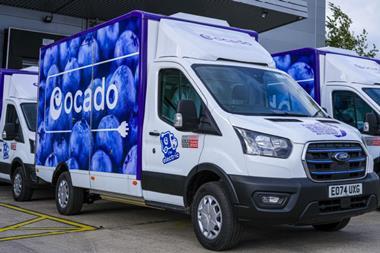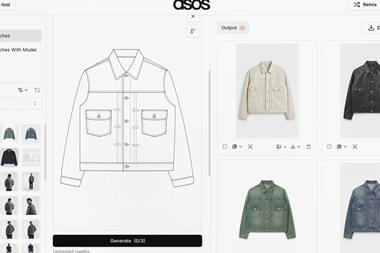With executives from retail and tech preparing to descend on Retail Racing 2020, event founder Kevin Ludford shares learnings and advice from technology players on how the industry has changed and what retailers should be doing to sustain growth post-Covid
As the world continues to fundamentally shift, we brought tech vendors including Klarna and Taggstar together to discuss the future of this moving digital retail landscape and asked them to answer five of our burning questions.
1. How are retailers adapting to reach those consumers in this new world?
“Businesses are looking for continuity and scalability – they are demanding help that allows them to dissect data, segment customer groups, and target shoppers more accurately at scale.
“In light of the shift to online, brands are now collecting more data than ever – browser, order, and email behaviour, for instance, which they can use to tailor future marketing messages with the utmost precision. Product recommendations – which drive 26% of total revenue – are one big opportunity where retailers can scale to generate larger revenues.” – Dotdigital Group
2. Yet everyone is under the pressure of time, so how should retailers be thinking differently?
”Retailers have learnt this year that they need to invest more in their digital and ecommerce technologies to adapt in the ‘new world’. However, ease and speed of implementing these technologies is still an important factor in their decision-making.
“Our retail customers are on the lookout for solutions that can be tested and rolled out seamlessly, with minimal risk”
Taggstar
“Our retail customers are on the lookout for solutions that can be tested and rolled out seamlessly, with minimal risk, especially ones that do not require deep integration into existing systems thereby making their stack more difficult to manage.
“There has to be a balance of control and time to deploy for retail and ecommerce teams, i.e. can customers control when to switch technologies on or off in order to adapt to the change in online traffic, and do so as quickly as traffic tide changes?” – Taggstar
3. How should retailers ensure they don’t lose consumers, especially at the critical purchase phase of the shopping journey?
“Covid-19 has forced a shift in consumer behaviour and, consequently, the way that retailers operate has had to follow suit. Now, retail environments need to make customers feel secure and comfortable immediately, otherwise they may turn elsewhere to find what they need.
“Clearly indicating any guidelines or restrictions that may be in place is an effective way of putting customers at ease and ensuring that their shopping experience is as seamless as possible.
“Additionally, mapping out your customers’ potential journeys is a good way of pinpointing how each step leading up to the purchase could be adjusted to reflect evolving requirements. Visibly signalling your increased hygiene and safety measures is important, but also ensure that you don’t neglect payment. The way that consumers want to pay has changed, largely evolving to avoid methods which involve physical contact, like cash.
“Therefore, the use of contactless payments has accelerated to enable customers to place transactions at a safe distance. POS terminals enabled with NFC technology are essential for businesses looking to accept mobile and contactless card payments. However, it’s beneficial to expand your offering beyond NFC-enabled terminals and Pay by Link is an increasingly popular of way doing this. It allows merchants to send secure payment links to customers who may not feel comfortable entering a busy store.” – eMerchantpay
4. Do you see the ‘spending’ demographic evolving and payment options adapting?
“The pandemic has completely transformed the shopping experience. The shutdown of bricks-and-mortar stores meant consumers had to consider alternatives, and in doing so developed an affinity for the convenience and flexibility. This trend and preference for being able to “try before you buy” or better manage cash flow, using Klarna, for example, shows no sign of slowing down, even as shops reopen.
“Our data shows that Gen X was the age segment that grew at the fastest rate during the lockdown period”
Klarna
“Shoppers of all ages are looking at how they can optimise their shopping and purchasing experience. However, a major trend we have noticed is the migration of Gen X customers – those aged 40-54 years – from high street to online shopping.
“Our data shows that Gen X was the age segment that grew at the fastest rate during the lockdown period, at twice that of Gen Z (18-23). Gen X now accounts for the second-largest segment of Klarna’s UK consumer spend, just behind tech-native millennials (24-39), who have long embraced digital payment solutions.” – Klarna
5. Finally, as we prepare for the Golden Quarter, how have retailers’ priorities changed to focus on the new market and drive growth?
“Pureplay retailers are going from strength to strength, while those with physical stores quickly need to reinvent themselves with a shift to online. We have seen a huge sway in reprioritising requirements to meet consumer demand versus new projects.
“In terms of scaling online, building greater redundancy into the ecommerce ecosystem is key. This could include adding additional payment methods, delivery options, and focusing on the quality of product data to really drive a quality experience and help support growth. We also see demand for enabling new geographies as merchants switch from store-based revenue and reinvest in growth channels that maybe they’ve deprioritised in the past.
“The overall trend though is ‘keep it simple’ – retailers are less concerned with new features and instead are more focused on streamlining their existing consumer shopping experience, targeting the all-important path to purchase and check-out. They have the foundation in place, so it’s still about fine-tuning and perfecting the experience to increase basket value, conversion and loyalty.” – Redbox Digital
As we reflect on the past seven months, many will have realised that the digital world of retail isn’t paused and it won’t return to how life was in March. The industry has evolved rapidly and those businesses that have been treading water have the most to lose.
Kevin Ludford is founder of Retail Racing. Retail Racing 2020 is a networking and fundraising event bringing together leaders in retail and technology.
Retail Racing would like to thank Dotdigital, eMerchantpay, Klarna, Scurri, Taggstar, Redbox Digital, Retail Technology and Validify.

























